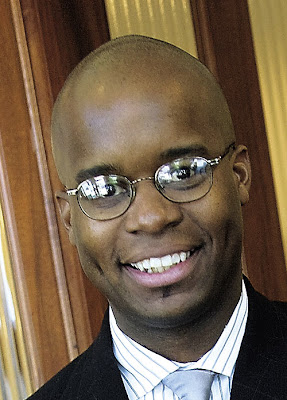Green writes, persuasively,
What if the S.C. General Assembly announced a new tax that would be paid primarily by the state's poor and minority citizens?
And that the majority of the money raised would not be used to help failing schools or aid students from impoverished backgrounds, but instead be used to provide scholarships to college-bound high school seniors, regardless of their financial needs?
To lessen the sting of such a seemingly unfair system of revenue collection, the payment of the tax would be 100 percent voluntary.
How enthusiastic would the average South Carolina citizen be for such a plan? If you could rate that enthusiasm on scale of one to zero, I'd say zero, unless the plan also promised participants a one in a 100 million chance of becoming a millionaire.
Apparently, this remote chance of becoming instantly rich is all that it takes for people to line up to pay the State of South Carolina hundreds of millions in revenue that they would not otherwise pay. This is the reality of the S.C. Educational Lottery, which for fiscal year 2010-2011 exceeded $1 billion in sales, something that it has only managed to do two other times in its decade-long history.
Championed by Democrats and former Gov. Jim Hodges, the lottery has become a regressive tax in the hands of a Republican-dominated legislature that decides which programs the lottery will fund. Data on lottery ticket sales show that poor citizens participate in the lottery much more than more affluent citizens do, but benefit decidedly less.
Since the S.C. Education Lottery began conducting demographic studies in 2002 — the first year of the lottery — those studies have underscored the fact that it operates as a regressive tax.
In 2008, a survey was conducted of South Carolina residents by the Alpharetta, Ga.-based firm Research Inc., the results of which were reported by the Arkansas News Bureau website when Arkansas hired South Carolina's former lottery director, Ernie Passailaigue. Although people in households earning under $40,000 comprised 28 percent of South Carolina's population, the survey found they accounted for 31.3 percent of its lottery players and 53.4 percent of its frequent players.
Meanwhile, a 2003 state lottery study conducted by the Columbia-based Market Search Corporation also found that 53 percent of all South Carolina residents had played the lottery as of that year, with 62 percent of African Americans having played, as opposed to 49 percent of Caucasians. That same study found that although the majority of state lottery players were white, the incidence of frequent lottery play was disproportionately higher among African Americans and players with household incomes between $10,000 and $50,000 (55-61 percent).
The overwhelming support of the lottery by South Carolina's poorer residents would not be as problematic if the majority of the funding went back to those communities with the highest need. However, the state lottery commission reports that from Jan. 7, 2002, through June 30, 2010, 73.36 percent, or $2,276,017,843, of the General Assembly's appropriations from the Education Lottery Account supported scholarships, grants, and other higher education programs, while the state Department of Education received 24.14 percent, or $549,949,126.
The college-bound recipients of these funds already have the benefit of excellent scholastic records, and they receive these funds regardless of their ability or inability to pay for college.
Despite its voluntary nature, there is no question that the S.C. Education lottery qualifies as a regressive tax since it imposes a greater burden on the poor than the rich, relative to resources. The continued participation in it can only be explained, in part, by an ignorance of the odds and where the money spent actually goes. That so many people buy in proves the old adage, "If you think education is expensive, try ignorance."

No comments:
Post a Comment